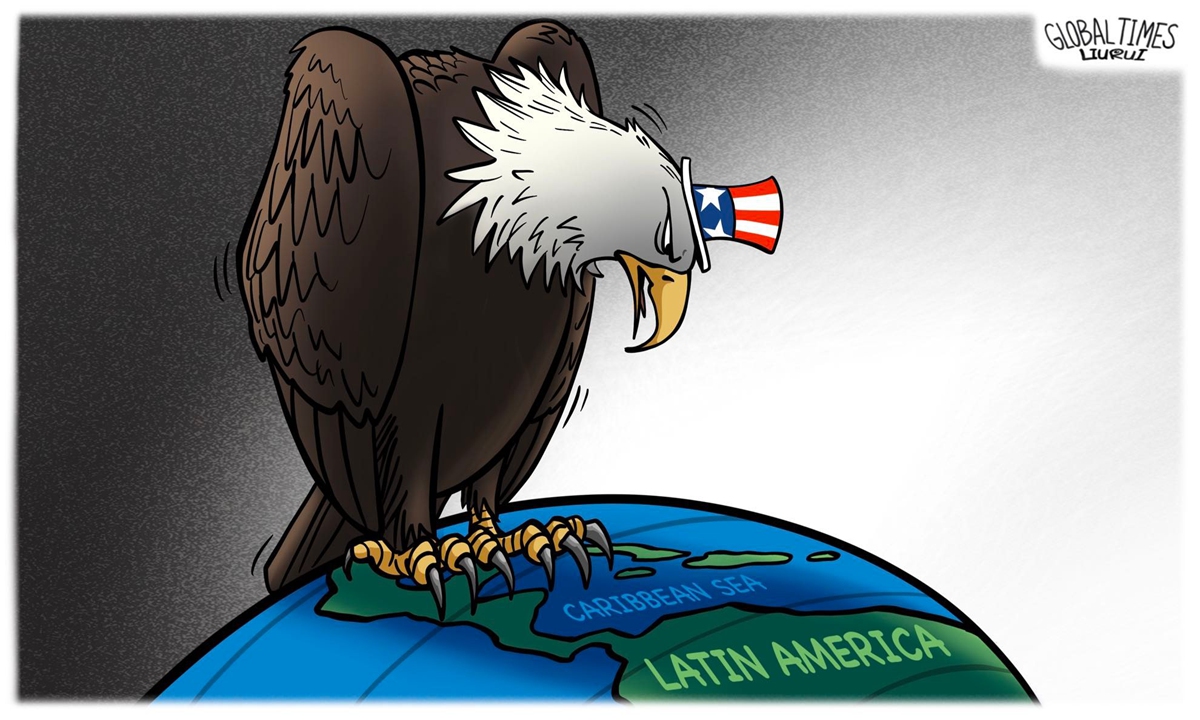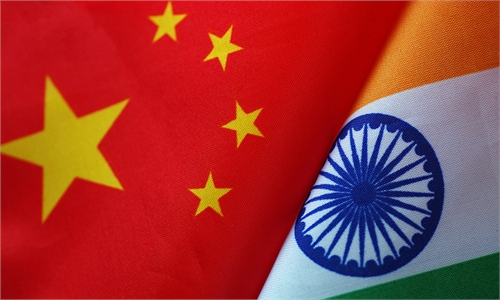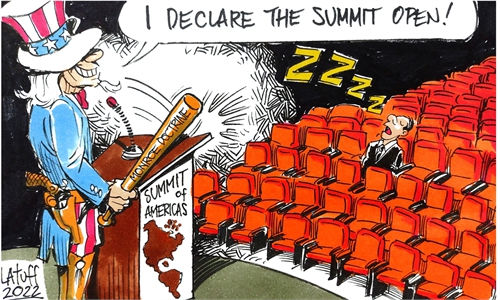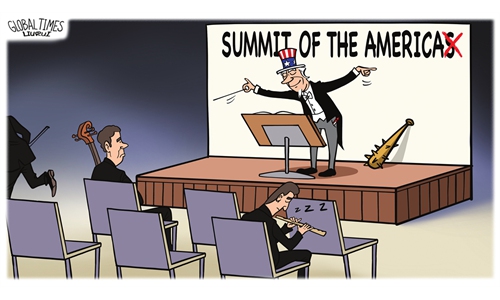
Illustration: Liu Rui/Global Times
The Ninth Summit of the Americas kicked off in Los Angeles on Monday US time. While the Biden administration may have had high hopes for the event to boost its relationship with Latin American countries and counter China's "expanding influence," growing pushback from various Latin American leaders against the US' exclusion of certain countries shows that Washington is headed for disappointment.The backlash, including threats to boycott the summit, laid bare Latin American countries' displeasure with Washington's political games, as well as the US' declining influence in Latin America - a direct result of the US' indifference to the needs of Latin American countries when it comes to economic and trade cooperation and its treatment of Latin American countries as geopolitical pawns. It also shows Latin American countries' determination to pursue cooperation with others like China without Washington's interferences.
The first Summit of the Americas was held under the former Clinton administration for the discussion of the establishment of the Free Trade Area of the Americas, which aimed to promote development and prosperity in the continent through a range of economic and social cooperation initiatives. However, those days and those goals are long gone. With the ideological division reflected in the US' invitation list, there are reasons to believe that the summit will only become a political tool for the US to achieve its own strategic goals.
The Biden administration has been roping in allies to form small cliques on the international stage in an attempt to rebuild economic, trade and industrial chains, excluding China and what it deems to be unfriendly countries by creating various political, economic and security mechanisms. If anything, the US' move to exclude some countries on ideological grounds could also be seen as an attempt to pressure Latin American countries to distance themselves from countries like China and its Belt and Road Initiative (BRI).
Nevertheless, any attempt to push Latin America in the direction of a new Cold War is doomed to fail. This is because China and Latin America countries have greatly deepened their economic and trade cooperation over the years, which cannot be reversed by a summit or other political means. In 2021, bilateral trade between the two sides exceeded $450 billion, marking a new historic high. China is Latin America's second-largest trading partner, while Latin America is the second-largest destination for China's outbound investment.
In fact, one of the biggest problems with the US' strategic goals in the region is its utter disregard for Latin American countries' needs for boosting economic and trade cooperation. At present, the Russia-Ukraine conflict has caused serious disruptions to global industrial and supply chains, leading to skyrocketing inflation, which has become a source of uncertainties in the regional economic development. Moreover, due to the US Fed's policy shift, Latin American countries are facing the pressure of capital outflows, which may evolve into a debt crisis in some countries if such trend continues.
Under such circumstances, the US would have the opportunity to strengthen its relations with Latin American countries if it could offer some concrete help. But the problem is that the protectionist sentiment is on the rise in the US, which makes it impossible to promise the region more market access. The protectionist policies of the Trump era already deprived the region of many trade dividends, and the Biden administration hasn't shown any sign of changing it. During the process, a lot of dissatisfaction has been accumulated among Latin American countries and their pushback before the summit this time may only show their low expectation of the US changing attitude toward regional cooperation.
Compared with the US that continues to dilute economic cooperation with ideological issues, Latin American countries are now looking more to cooperation with China based on mutual respect. In particular, under the BRI framework, cooperation between China and Latin America has made remarkable achievements, and an important reason behind it is that their cooperation features extensive consultation, joint contribution and shared benefits, instead of geopolitical goals.



